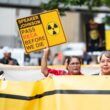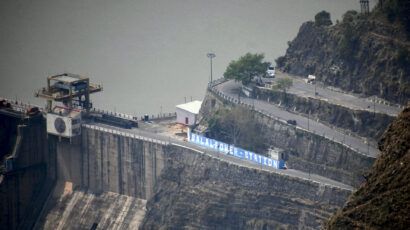When the public doesn’t trust you
By Sulfikar Amir |
One day in August 2013, hundreds of motorcycle-riding students converged on a government office in Indonesia's South Bangka District. They came with a demand—not that tuition increases be reversed, or that job opportunities for young people be prioritized, but that the district head denounce plans to construct the country's first nuclear power plant on Bangka Island. The district head demurred, but an antinuclear movement persists on Bangka Island and in much of the country. Indonesians simply don't trust their government to get nuclear power right.
Following the accident at the Fukushima Daiichi Nuclear Power Station, one might have expected nuclear power to lose much of its appeal. But in many developing countries, Indonesia among them, the desire for nuclear power has remained strong among officials, even if publics may harbor deep concerns about governmental ability to operate nuclear facilities.
To understand the dynamics of nuclear politics in Indonesia, it is useful to understand the nation's recent economic history—this is the backdrop against which the pronuclear and antinuclear camps make their cases. In the last years of the 20th century, Indonesia suffered through a bitter financial crisis. It experienced a few years of malaise thereafter. But over the past decade or so, Indonesia has achieved remarkable economic growth. Due partly to the government's efforts to battle deindustrialization, along with a program of liberalization that has included the opening of domestic markets to international products and investment, Indonesia has become one of the world's more important emerging economies. It is a member of the Group of Twenty (G-20). Its gross domestic product in 2012 was $878 billion—more than nine times its level in 1998, during the depths of the Asian Financial Crisis.
This massive economic expansion has had profound implications for energy demand—and energy has long been a fraught issue in Indonesia. Beginning in the 1970s, during the Suharto regime, Indonesia experienced an oil boom. Oil satisfied the country's energy demand and also became the government's primary means for funding development projects including a program of rapid industrialization. But the regime's reckless management of oil resources led to severe inefficiency in energy production and distribution. By the turn of the century, oil reserves were rapidly depleting, and in 2005 the country became a net importer of oil. Indonesia's electrification rate is around 70 percent, among the lowest rates in Southeast Asia. Major cities such as Jakarta, Bandung, and Surabaya suffer from frequent blackouts. Soaring economic growth is only widening the gap between supply and demand. So the search has intensified for alternative energy sources—nuclear power among them.
Indonesia's experience with nuclear technology dates back to the late 1950s, when the Institute of Atomic Power was established. In the 1960s, a more full-fledged entity—the National Nuclear Power Agency, known as BATAN—was created. A research reactor funded by the US “Atoms for Peace” program was installed. Later, two more research reactors were built. Indonesia developed its capacities in fields such as isotope production for medical and agricultural purposes. Today, Indonesia's decades of experience in operating research reactors would seem to indicate that the country has the capacity to operate power reactors as well.
Plans to develop a nuclear power sector have been discussed since the 1970s. But oil so dominated energy policy under Suharto that little progress was made for decades. In 2004, however, the government adopted a new energy policy according to which nuclear power would account for about 2 percent of electricity production by 2025. Four reactors would be built, producing 4,000 megawatts of electricity among them. Nuclear energy was portrayed as a clean, cost-effective energy source.
The first reactor was to have been completed by 2016 but it has been delayed repeatedly due to antinuclear protests—in particular, protests against nuclear power plants on the highly volcanic island of Java. Facing strong public opposition, the government in 2010 abandoned plans for reactors on Java. Plans now center on Bangka Island. The change has had implications for the project's scale—plans now call for two reactors instead of four, and lower electricity output.
The decision to scale down the nuclear project may seem an appropriate response to public opposition. But the question is why public attitudes toward nuclear power in Indonesia are so dominated by fear of nuclear hazards—a fear that has only intensified since Fukushima, which demonstrated that even a country with a strong safety culture can struggle in the face of a nuclear catastrophe.
In Indonesia, the root of public concern is the government's notoriously poor capacity to ensure public safety and security—as demonstrated, for example, in failed disaster mitigation and in frequent transportation accidents. Public resistance is not rooted in concerns about nuclear technocrats' competence—BATAN has had 50 years of experience operating research reactors. But BATAN isn't the issue. The issue is that the public distrusts the entire institution of government. Indonesians perceive their government as inefficient, poorly coordinated, and widely corrupt. When it comes to operating high-risk technology, these are grave problems. They can only be solved through a program of institutional reform, but an effective reform process can take years.
In an emerging democracy like Indonesia, a nuclear power sector cannot be developed without public deliberation and public acceptance. So until Indonesia's government can improve its efficiency, coordination, and quality of governance—traits that underlie the capacity to operate a nuclear power sector—establishing such a sector will remain a political challenge.















